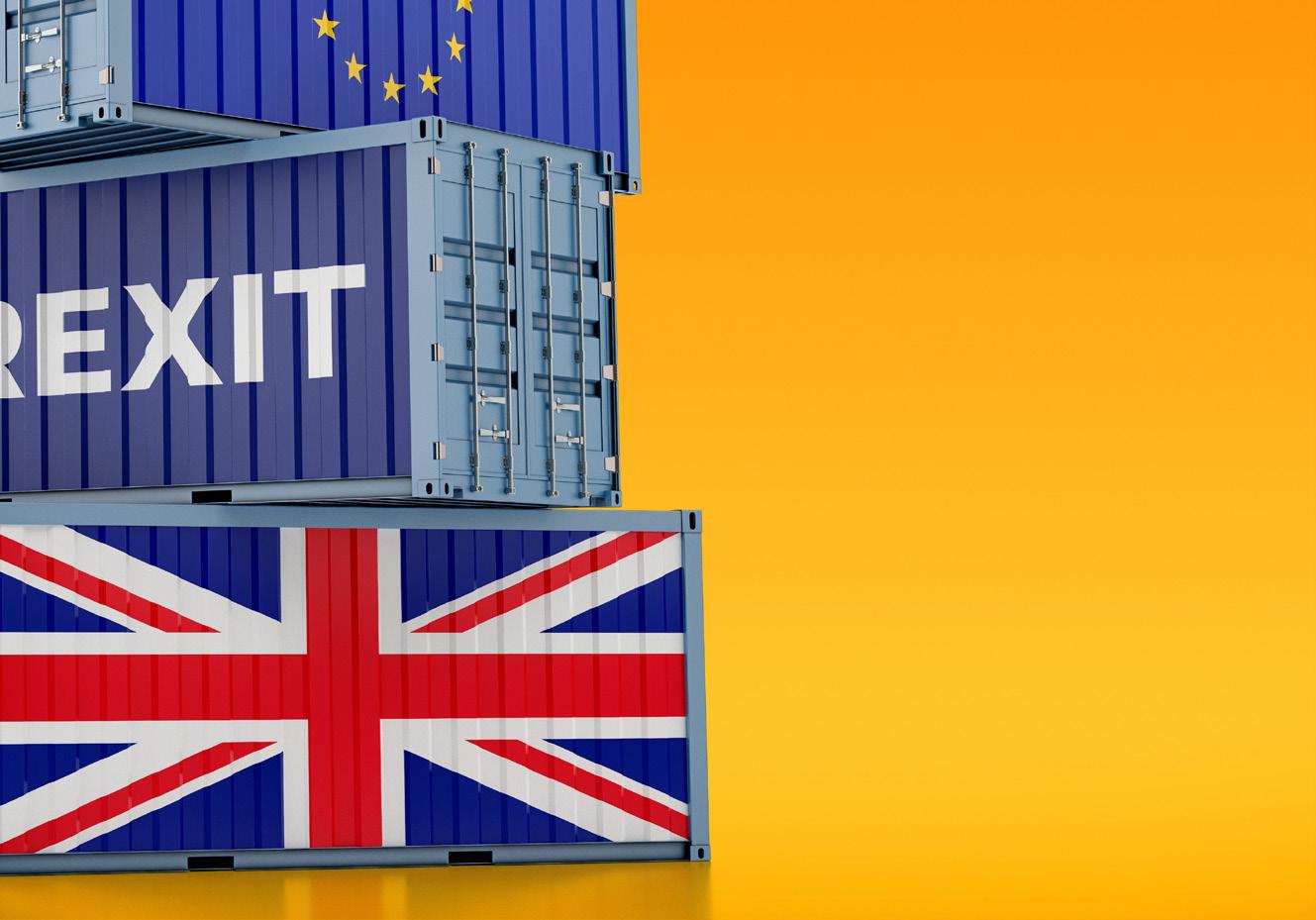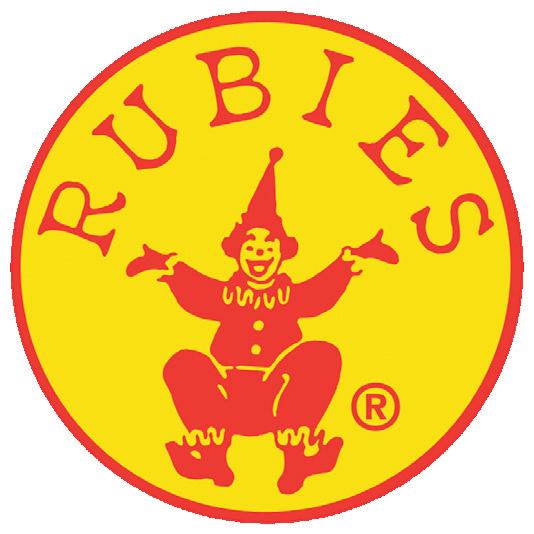
10 minute read
BREXIT LATEST
Above:Taking a global view of the party market.

THREE MONTHS OF BREXIT - NO REASON TO PARTY?
Following PPE’s ‘The Brexit Effect’ article in the January/February edition, we catch up with suppliers to understand how the ship is sailing – or not – as we cross the first hundred days of Brexit.
The warnings were made - a vote to leave the European Union would kick off an unholy recession, cause ripples in the housing market and, above all, create a huge downward curve in imports and exports. This was all according to our own UK government over a five-year period since the referendum vote which didn’t go the way that most people expected or wanted.
Now passing some three months of trading pattern, with a global curveball thrown in for good measure, we have a more evidential view of the ramifications of that decision to leave. The split has already seen a negative impact on the UK economy, the data shows quite clearly, even if it has been largely overshadowed by the coronavirus pandemic.
Many of the consequences of Brexit will need time and motion to be understood. With Britain outside the EU’s single market and customs union, trade with the bloc has been damaged, for sure, though the full extent of the damage won’t be clear until businesses fully re-open after lockdown and time passes into the new normal.
Some of the claims made by the remain camp, ‘Project Fear’ as not so affectionally named by the press, have proven to be overstated. In a report published before the 2016 referendum, the Treasury predicted that a vote to leave, followed by the immediate triggering of the Article 50 withdrawal process, would see national income decline by as much as 3.6% within two years, 520,000 more people unemployed and house prices fall by 10%.
It didn’t turn out that way. Not least because the government didn’t invoke Article 50 until March 2017. By June 2018, gross domestic product had risen by more than 3%, unemployment had fallen by 280,000 and the average house price had gained more than 7%.
Then came COVID-19. GDP shrank almost 10% in 2020, the worst slump since the Great Frost of 1709. The economy has only partially recovered from the huge losses incurred during the first lockdown of spring 2020, leaving us further below pre-pandemic levels of output than any other Group of Seven nation.
INCREASED COST OF LIVING?
In April 2016, the government sent a leaflet to all UK households, urging them to vote in favour of staying in the EU. It warned that leaving would increase the cost of living, because a falling pound would make imports more expensive – with around half of all UK imports coming from the European Union.
That such leaflet would turn out to be mostly correct; the pound fell by as much as 18% against the Euro within two years of the referendum and remains 12% below its level on the day of the Brexit vote. Consumer-price inflation reached a near six-year high of 3.1% in November 2017, squeezing living standards. It remained above the Bank of England’s 2% target for almost all of the following two years. But inflation has since slumped because of the coronavirus pandemic.

ABOUT TRADE AND PRODUCT…
The Treasury predicted that if the UK left the EU and managed to reach a trade deal with the bloc, the country’s economy would be between 4.6% and 7.8% smaller in 15 years’ time than it would have been had it stayed in the EU.
Though Britain has only been formally out of the EU’s single market for around three months, the Office for Budget Responsibility estimates that Brexit has already lowered GDP by 1.4% since the referendum. It now expects GDP will be 4% lower in the long run than had Britain remained in the EU.
The government also said that leaving the EU would make it more difficult for companies to export goods to the bloc, and that businesses would face higher costs. This warning turned out to be correct with party product suppliers having to traverse extra paperwork, jurisdiction and more to be able to ship into Europe. In January alone, exports to the continent shrank by 41% from the previous month.
David Frost, who negotiated the post-Brexit trade deal with the EU and is now minister responsible for Britain’s relations with trading Europe has blamed stockpiling in December and the coronavirus lockdown for the reduction in trade. He says trade recovered to its normal level at the start of February 2021.
The full cost of Britain’s decision to cut ties with its biggest and closest commercial partner is likely to only become clear once the coronavirus restrictions ease and businesses return to normal.
Inset:COVID-19 lockdown creates an unprecedented downturn in GDP.
What do the party people say?
FRASER SMEATON, CEO, MORPH COSTUME COMPANY
“There are multiple logistics issues live at the moment. They are caused by a variety of reasons stemming from both the pandemic and Brexit.
COVID has caused long delays at UK and US ports which has then driven a spike in freight costs because there aren’t enough containers making it back to China. Luckily, we have, so far, escaped the worst of this due to the bulk of our 2020 orders arriving before these issues started in Q4 2020. We are hopeful these issues will have unwound before our 2021 orders need to ship but that is far from certain.
The end of the Brexit transition period has caused big problems for trade into the EU. Bulk and direct to consumer orders require more paperwork, are more expensive and have longer ship times, making businesses with UK held stock much less competitive than those with stock held in the EU. The only mitigating factor has been that the volumes we have required to ship to the EU have been much reduced due to ongoing pandemic restrictions and the cancellation of Karneval. With the end of the pandemic in sight and this issue impacting cross border trade in all industries hopefully pressure builds on the government to find a solution.”


LINDA CURLEY, HEAD OF INVENTORY, AMSCAN INTERNATIONAL
“I don’t think there is anyone who didn’t know that Brexit would be a shock to the system given the ease of trading with the EU for so many years. However, we had spent the previous nine months preparing for this situation, so we found ourselves better prepared than a lot of businesses.
Even so, with this preparation in place there had been many new processes that have been added in at the last minute which we had to successfully navigate to ensure continuity of supply to our valued customers in Ireland and in mainland Europe.
Our European suppliers to our business have also been able to easily deliver goods to us.
In addition, we have the flexibility of an established and successful wholesale business in Germany which enables us to tailor our supply in line with the best options for our valued customers.”
ELLIOTT PECKETT, DIRECTOR, RH SMITH & SONS (SMIFFYS)
“Smiffys put several plans in place to ensure the transition into shipping globally after Brexit was as smooth as possible. Our European warehouse means we are able to supply goods from within the EU with European freight operators. Our new, larger EU facility in Neuss now holds much more stock, offering superior levels of availability to international customers.
We also have stock shipped directly from our Chinese warehouse to our European warehouse to ensure quicker lead times for stock without coming to UK ports. That being said, there are delays at ports due to the new protocol in place as well as a worldwide shortage of freight, so we are expecting occasional delays beyond our control while these issues are being ironed out.”










A view from Europe…
BOLAND PARTY: THE PEOPLE ON THE GROUND MUST WORK BETTER
“It has been a complete pain in the proverbial backside. Now most customers are getting to grips with it, though it’s a shame that the courier and freight companies are not. Fundamentally, they are all setting the ground rules (the couriers, that is) but they are breaking their own rules. And, consequently, screwing up deliveries.
It seems to be levelling out to a degree and would actually work okay if the couriers got their act together. Over the last week or so UK customers have started to order on a more regular basis. HRMC did their best to help at the beginning, but it was still pretty poor. It included a two-minute YouTube video advert for Davies Turner (a shipping company). I know from other sectors, for example the stationery market, that there are still many shortages and we see it the non-food sectors of the supermarkets where the shelves all appear empty.”

Below:HMRC issued a YouTube video pushing the work of expert freight forwarders.

MIKE O’CONNELL, MANAGING DIRECTOR, RUBIES MASQUERADE CO.
“Rubies has operations and warehouses throughout continental Europe and we are well stocked and prepared going into the seasons ahead.
Ports do remain congested and this continues to have a relative impact on trade with delays longer than anticipated. Shipping prices significantly increased approaching Brexit. We had expected to them to stabilise, however, the Suez canal incident has exacerbated the situation.
Fortunately, we have millions of pounds of inventory across all brands, instock throughout the region so we are well placed to be able to supply our retail partners. With demand expected to be incredibly high post lockdown, we would encourage our customers to order early, taking full advantage of our great availability.”




SERGIO BATTANER, SALES AND MARKETING DIRECTOR, PALMER AGENCIES
“As we’re based in Northern Ireland, we are part of the UK market AND the EU single market for goods.
Our customers will not experience any problems and, for Palmer Agencies, this has not caused any issues at all. Expect the same service from us with none of the paperwork attached to Brexit.”


CARLOS PÉREZ, GENERAL MANAGER, MY OTHER ME FUN COMPANY
“In addition to Brexit, which is a challenge for us as a company based in Spain, in 2021 we are encountering very important challenges with our manufacturing in Asia. The price increase in the containers as well as the longer time in production has led us to make a strategic decision and as of this year we began an ambitious project to manufacture in Spain and Turkey. This will help us to drastically reduce the times in the go to market as well as a significant increase in the quality of the products.”

